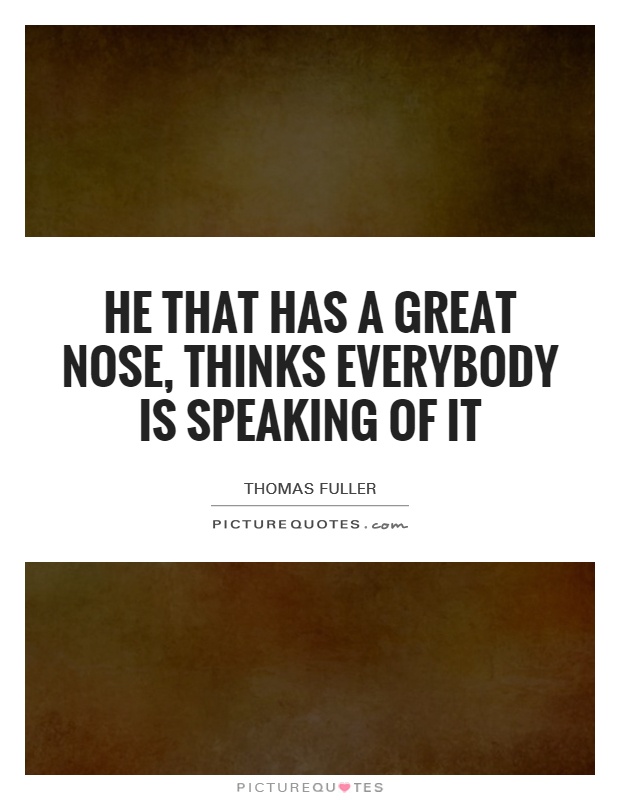He that has a great nose, thinks everybody is speaking of it

He that has a great nose, thinks everybody is speaking of it
Thomas Fuller was a renowned English churchman and historian who lived in the 17th century. He was known for his witty and insightful observations on human nature, which often reflected the quirks and foibles of society. One of his most famous quotes is, "He that has a great nose, thinks everybody is speaking of it."This quote speaks to the idea that people who are overly self-conscious about a particular aspect of themselves tend to believe that others are constantly noticing and talking about it. In this case, Fuller uses the metaphor of a "great nose" to represent any physical or personal characteristic that someone may be insecure about. Whether it be a physical feature, a personality trait, or a past mistake, individuals who are overly sensitive about it may project their own insecurities onto others.
The quote also highlights the tendency of human beings to be self-centered and to assume that they are the center of attention in any given situation. People who are preoccupied with their own flaws or shortcomings may mistakenly believe that others are equally fixated on them. This can lead to feelings of paranoia, anxiety, and self-doubt, as individuals become hyper-aware of how they are perceived by others.
Furthermore, Fuller's quote suggests that our perceptions of ourselves are often distorted by our own insecurities and biases. Just because we are self-conscious about a particular aspect of ourselves does not mean that others are as well. In reality, people are often too preoccupied with their own lives and concerns to pay much attention to the perceived flaws of others.
Overall, Fuller's quote serves as a reminder to be mindful of our own insecurities and to not project them onto others. It encourages us to have a more balanced and realistic view of ourselves and to not assume that everyone is constantly judging or criticizing us. Instead, we should strive to cultivate self-acceptance and confidence, knowing that our perceived flaws are often more exaggerated in our own minds than in the eyes of others.












 Friendship Quotes
Friendship Quotes Love Quotes
Love Quotes Life Quotes
Life Quotes Funny Quotes
Funny Quotes Motivational Quotes
Motivational Quotes Inspirational Quotes
Inspirational Quotes